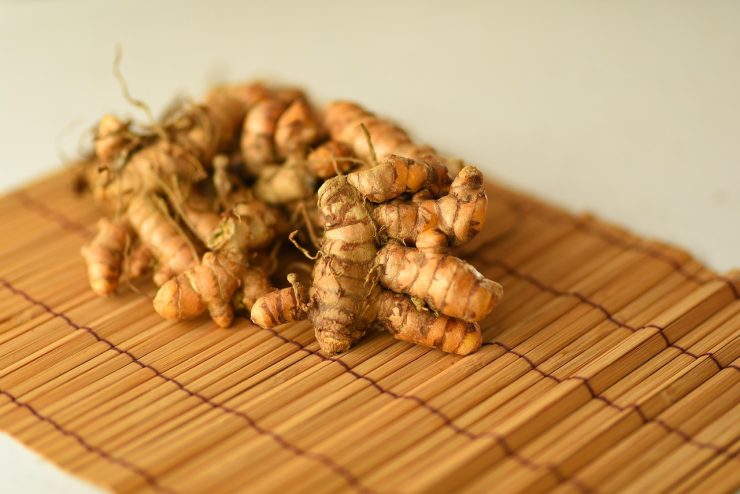Turmeric has gained a lot of attention in recent years, often promoted as a remedy for everything from arthritis and fatigue to depression and even cancer. While it’s certainly a powerful spice, it’s helpful to look more closely at the claims—and the facts behind them.
Turmeric vs. Curcumin: Not Quite the Same
Turmeric and curcumin are often used interchangeably, but they’re not identical. Turmeric is the whole root (or powdered spice), while curcumin is the primary active compound within it. Most research on turmeric’s health benefits actually focuses on curcumin, not the whole turmeric spice.
Here’s the catch: turmeric contains only about 3% curcumin by weight. And once ingested, only a small fraction of that curcumin is absorbed by the body—unless it’s combined with black pepper, which dramatically boosts absorption.
To put this in perspective, getting a therapeutic dose of curcumin from turmeric alone would require consuming several tablespoons of turmeric per day. That’s far more than most people would want to eat—whether in tea, curries, or smoothies.
Curcumin’s Potential Benefits
Most clinical studies involving curcumin show promise for its anti-inflammatory and antioxidant effects. It has been linked to improvements in symptoms associated with:
-
Joint pain and arthritis
-
Inflammatory bowel diseases like Crohn’s and IBS
-
Allergies and hay fever
-
High cholesterol
-
Cognitive decline, including Alzheimer’s
-
Depression and anxiety (possibly linked to inflammation)
-
Blood sugar regulation
-
Some types of cancer
The therapeutic dosage used in many studies ranges from 500 to 2,000 mg of curcumin per day, often in extract form, sometimes combined with piperine (the active compound in black pepper) to enhance absorption by up to 2,000%.
Why Black Pepper Matters
Piperine significantly increases the bioavailability of curcumin. That’s why many curcumin supplements already include it. If cooking with turmeric, it’s smart to add a bit of black pepper for the same reason.
When Caution Is Needed
Although turmeric and curcumin offer several health benefits, they’re not without potential risks, especially when taken in concentrated doses. Some of the more notable side effects include:
1. Blood Thinning
Turmeric may act as a natural blood thinner. When combined with anticoagulant or antiplatelet medications, this could increase the risk of bleeding. It’s also advised to stop using it at least two weeks before surgery.
2. Not Recommended During Pregnancy
Small amounts of turmeric in food are generally considered safe during pregnancy. However, turmeric or curcumin supplements should be avoided, as they may stimulate uterine contractions or affect hormone levels.
3. Gastrointestinal Distress
Curcumin can increase stomach acid production, which may worsen symptoms for people with acid reflux or GERD. Some individuals also report nausea, dizziness, or diarrhea when taking it.
4. Blood Sugar Effects
Curcumin may lower blood sugar levels. While this can be beneficial, it’s important for people with diabetes or hypoglycemia to monitor levels carefully and speak with a healthcare provider, especially if already taking glucose-lowering medications.
5. Hormone-Sensitive Conditions
There’s some evidence that curcumin might act like estrogen in the body, so those with hormone-sensitive cancers should exercise caution. While some research suggests it might block estrogen in certain tissues, the findings are still mixed.
6. Fertility Considerations
Some animal studies suggest curcumin could reduce sperm count and motility. For individuals trying to conceive, this is worth noting.
7. Iron Absorption
Curcumin may interfere with iron absorption, which could be a concern for individuals prone to anemia or those following a plant-based diet low in iron.
Using Turmeric Safely and Effectively
For everyday use, turmeric can be a flavorful addition to meals, adding a nutritional boost to soups, stews, smoothies, and teas. Just don’t rely on small amounts of turmeric in food alone to deliver significant health results—especially if targeting inflammation or chronic conditions.
For therapeutic purposes, curcumin supplements may be a more practical option. Look for high-quality supplements that:
-
Contain at least 500 mg of curcumin per serving
-
Include black pepper extract (piperine) or a lipid-based delivery system for better absorption
-
Are third-party tested for quality and purity
It’s best to start with a lower dose and increase slowly to assess tolerance. And as with any supplement, it’s important to consult with a healthcare provider—especially for those with preexisting health conditions or who are taking other medications.
Final Thoughts
Turmeric isn’t a miracle cure, but it does offer well-documented health benefits, especially for reducing inflammation and supporting joint and immune health. When taken in the right form and dosage, and paired with black pepper, curcumin can be a valuable addition to a wellness routine. Just be mindful of the potential interactions and side effects, and use it wisely.











